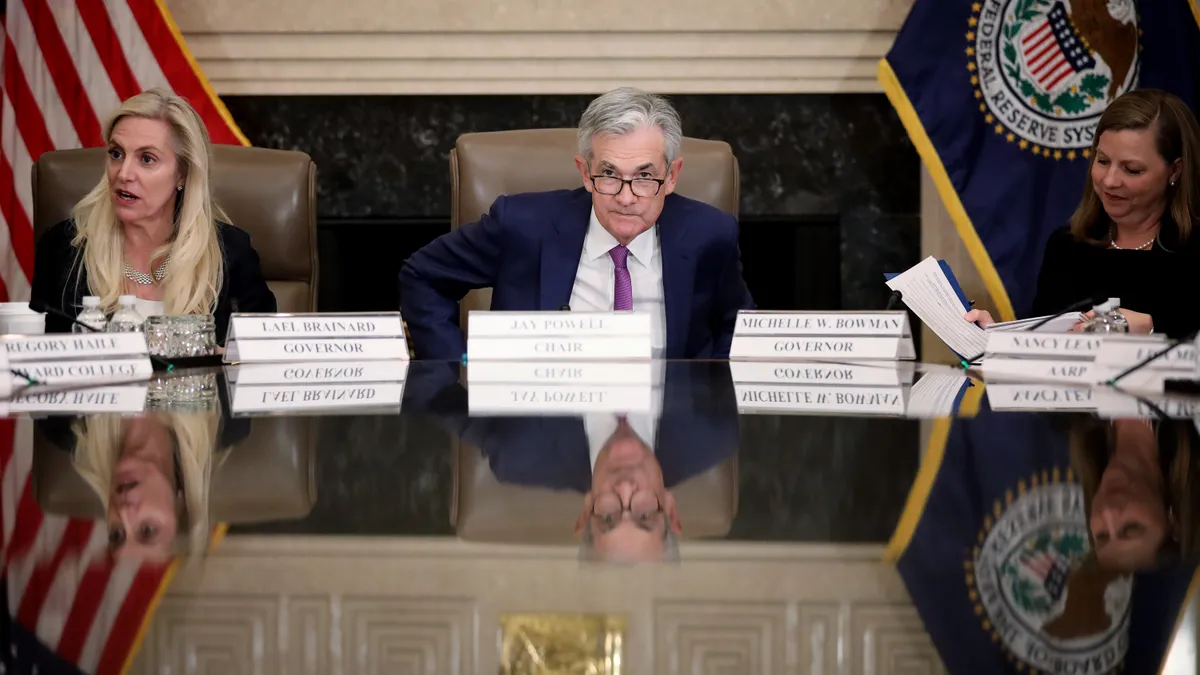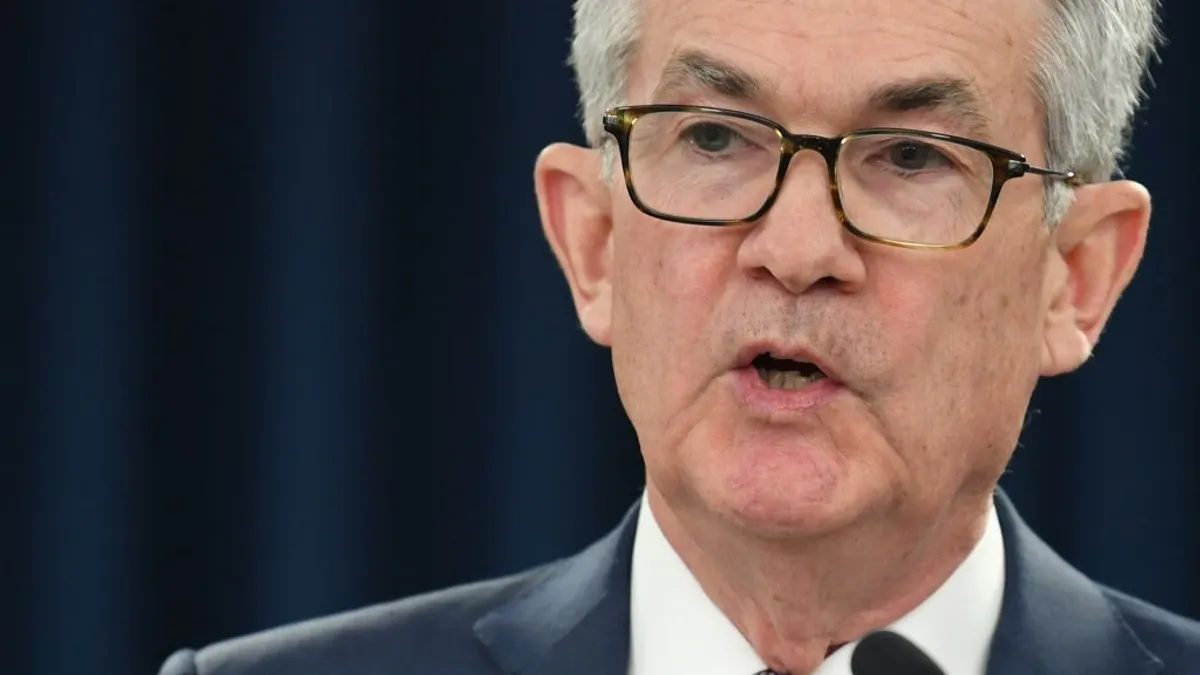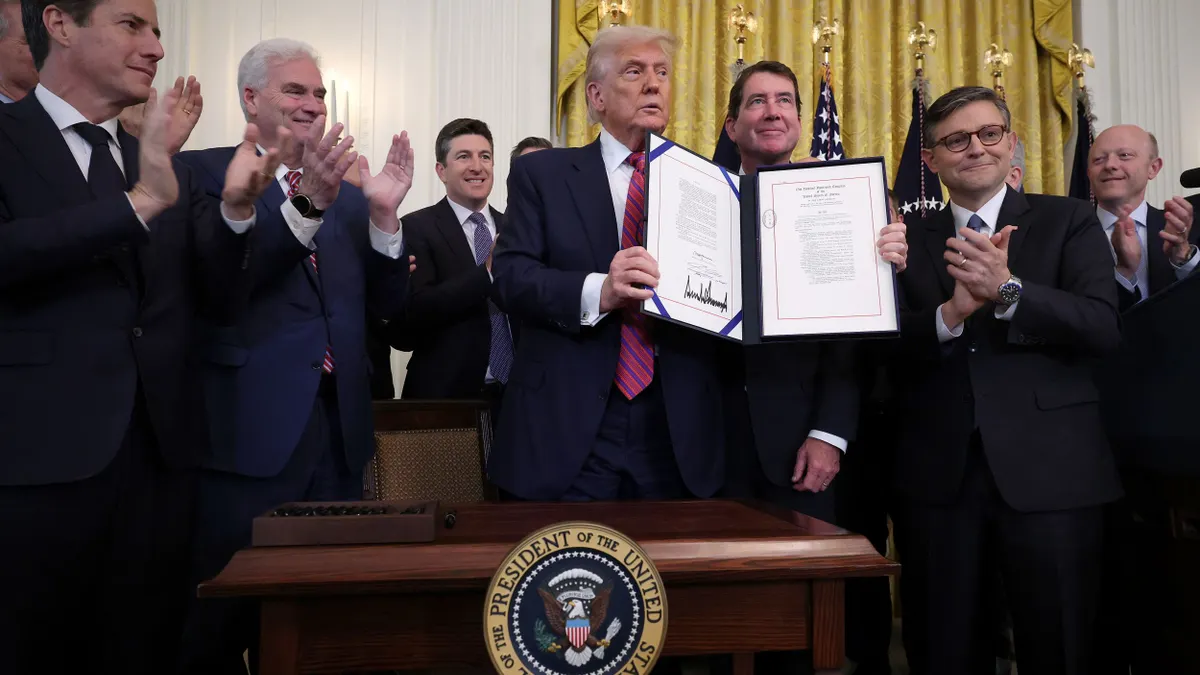The announcement by President Joe Biden on Monday that he intends to nominate Jerome Powell to a second four-year term as Federal Reserve chair validates Powell's efforts to balance the need for job gains and robust growth with the imperative to avert runaway inflation.
The emphasis on policy continuity does not mean Powell in the months ahead will forgo a sudden course correction from record accommodation and exceptionally low corporate borrowing costs if rapid price gains persist.
Powell said on Nov. 3 that the central bank “will not hesitate to act” to curb inflation, now running at the highest rate in three decades. “We have to be in a position to address that risk.”
Business lobbying groups and key lawmakers from both parties endorsed another term for Powell, applauding his use of unprecedented stimulus to navigate the economy out of a pandemic-induced lockdown and the sharpest recession on record.
“Powell has been instrumental in guiding our nation’s economy and financial system through the unprecedented challenges brought on by the COVID-19 pandemic,” U.S. Chamber of Commerce President Suzanne Clark said in a statement. The chamber “urges the Senate to rapidly confirm Powell for a second term.”
Powell also gained bipartisan support from leaders on the Senate Banking Committee, which will vote on his nomination in coming weeks.
Biden and Powell will “continue to steer our recovery in the right direction — toward an economy that empowers workers and their families,” Committee Chair Sherrod Brown, D-OH, said on Twitter.
Sen. Pat Toomey of Pennsylvania, the panel’s senior Republican, also said he’ll support Powell’s confirmation.
“While I strongly disagree with Chairman Powell’s decision to continue the Fed’s emergency accommodative monetary policy — long after the economic emergency had passed — Chairman Powell’s recent comments give me confidence that he recognizes the risks of higher and more persistent inflation and is willing to act accordingly to control it,” Toomey said.
The consumer price index last month rose at a 6.2% annual rate, according to the Labor Department. The Fed’s preferred measure of price gains — the core personal consumption expenditures price index — rose 3.6% in September.
CFOs face even higher price gains for wholesale goods. The producer price index for final demand, a measure of what suppliers charge, soared 8.6% in October from the prior year, according to the Labor Department. That was a record jump in a series of data first published in 2010.
“Helped wanted” signs go unanswered, compelling CFOs to raise wages. The quits rate, or the number of workers who left their jobs as a percent of total employment, increased to 3% in September, the highest rate in data going back to 2000, the Labor Department said. There were 1.4 job openings for every unemployed worker.
Many CFOs have increased compensation in response to the labor shortage and rising prices. The proportion of small businesses that raised pay last month hit a 48-year high, with a net 44% increasing compensation and a net 32% planning to do so in the next three months, according to the National Federation of Independent Business (NFIB).
Target of criticism
While gaining broad support on monetary policy, Powell has drawn fire from such progressive Democrats as Sen. Elizabeth Warren of Massachusetts for easing bank regulation in recent years. “This makes you a dangerous man to head up the Fed,” she told Powell during a Sept. 28 committee hearing.
Biden resisted pressure from some Democrats to replace Powell with Fed Governor Lael Brainard, who supports current monetary policy while advocating tougher bank oversight and efforts to combat climate change. Instead, Biden said he intends to nominate Brainard to serve as Fed vice chair.
With inflation accelerating, Fed officials such as St. Louis Fed President James Bullard have recently called for stronger measures to curb price gains. The central bank this month said it will begin withdrawing stimulus by tapering $120 billion in monthly bond buying, putting it on track to end the purchases by June.
Biden in a statement expressed confidence in efforts by Powell and Brainard to limit inflation. “I’m confident that Chair Powell and Dr. Brainard’s focus on keeping inflation low, prices stable and delivering full employment will make our economy stronger than ever before,” he said.
Powell and Brainard share a "deep belief that urgent action is needed to address the economic risks posed by climate change," Biden said.
The president plans early next month to announce nominees for three openings on the Fed’s Board of Governors, the White House said, adding he is committed to expanding the board’s diversity.
One position is currently held by Fed Governor Randal Quarles. He stepped down as vice chair for supervision in October and has indicated he will leave the Fed next month.
























